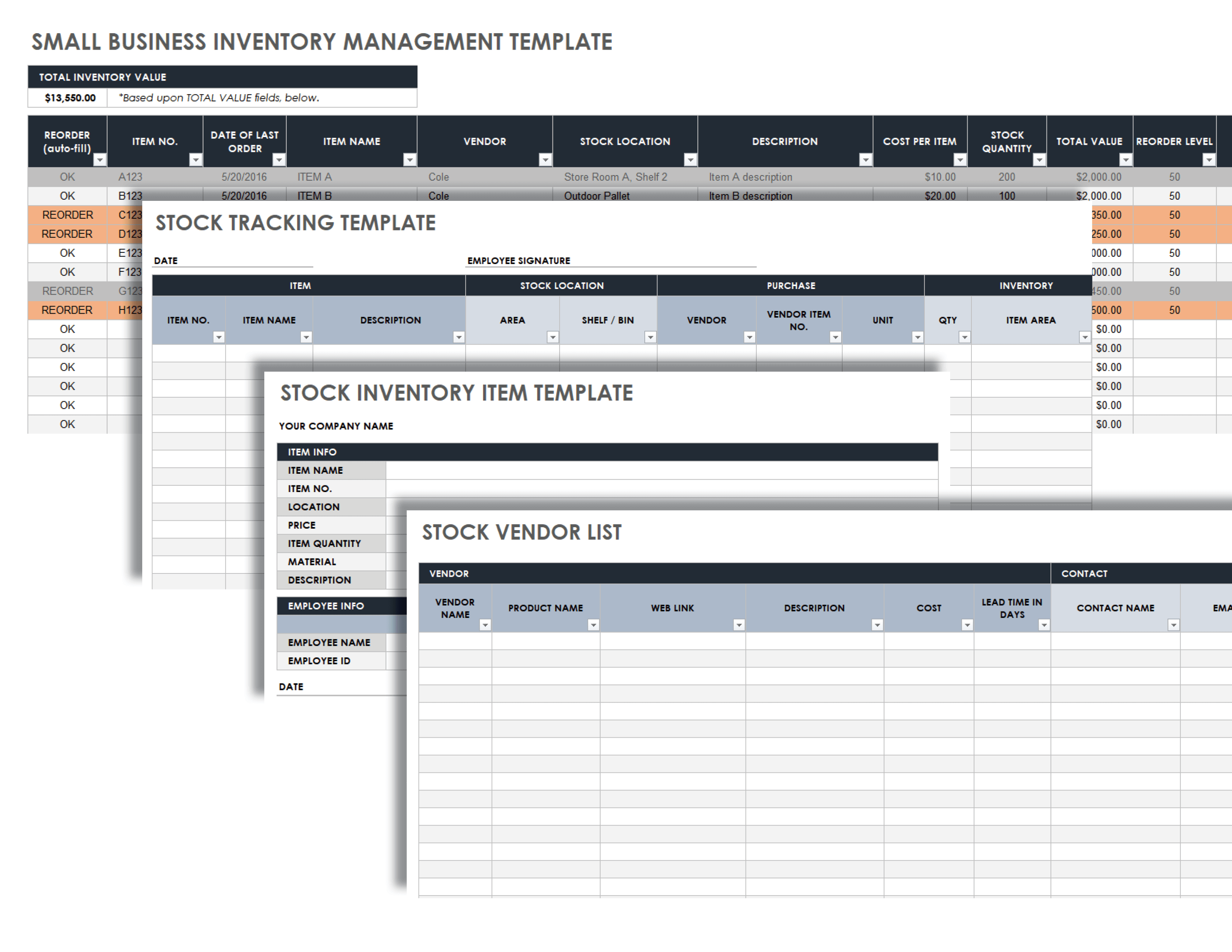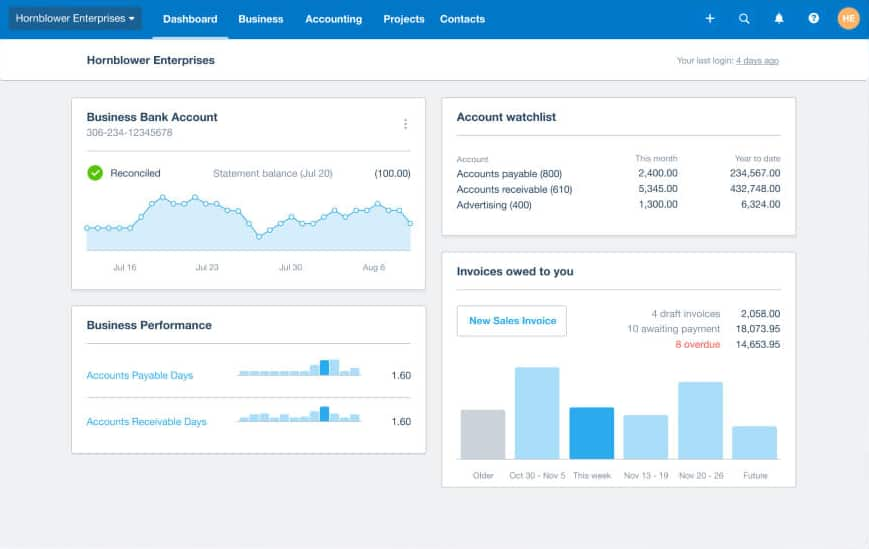Accounting software for small business with inventory – For small businesses with inventory, accounting software is not just a tool; it’s a lifeline. Dive into the world of accounting software designed specifically for small businesses, where we’ll explore its features, benefits, types, implementation strategies, and real-world success stories. Get ready to streamline your inventory management, improve financial accuracy, and watch your business soar.
In this comprehensive guide, we’ll navigate the intricacies of accounting software, empowering you to make informed decisions that drive your business forward. Let’s delve into the details and unlock the potential of accounting software for small businesses with inventory.
Types of Accounting Software Available

Selecting the right accounting software for your small business with inventory is crucial. There are three main types of accounting software available: cloud-based, desktop-based, and mobile-based. Each type has its advantages and disadvantages, and the best choice for your business will depend on your specific needs.
Cloud-Based Accounting Software
Cloud-based accounting software is hosted on a remote server and can be accessed from anywhere with an internet connection. This type of software is typically more affordable than desktop-based software and is often easier to use. However, cloud-based software can be less secure than desktop-based software, and you may be concerned about the privacy of your data.
Desktop-Based Accounting Software
Desktop-based accounting software is installed on your computer and does not require an internet connection to use. This type of software is typically more expensive than cloud-based software, but it is also more secure. Desktop-based software can be more difficult to use than cloud-based software, but it offers more customization options.
Mobile-Based Accounting Software
Mobile-based accounting software is designed to be used on smartphones and tablets. This type of software is typically less expensive than cloud-based or desktop-based software and is very easy to use. However, mobile-based software is not as powerful as cloud-based or desktop-based software and may not be suitable for businesses with complex accounting needs.
| Type of Software | Advantages | Disadvantages |
|---|---|---|
| Cloud-Based | – Affordable – Easy to use – Accessible from anywhere with an internet connection |
– Less secure than desktop-based software – Privacy concerns |
| Desktop-Based | – More secure than cloud-based software – More customization options |
– More expensive than cloud-based software – More difficult to use – Not as portable as mobile-based software |
| Mobile-Based | – Affordable – Easy to use – Portable |
– Not as powerful as cloud-based or desktop-based software – May not be suitable for businesses with complex accounting needs |
Implementation and Best Practices

Implementing accounting software for small businesses with inventory requires a strategic approach. By following a step-by-step guide and adhering to best practices, businesses can ensure a smooth transition and maximize the benefits of the software.
Data Migration, Accounting software for small business with inventory
Migrating data from existing systems is crucial. Businesses should carefully plan the data extraction and transfer process to avoid data loss or inconsistencies. It is recommended to use specialized tools or consult with an experienced accountant to ensure accuracy.
Staff Training
Training staff on the new software is essential for its successful adoption. Provide comprehensive training sessions that cover all aspects of the software, including data entry, reporting, and inventory management. Hands-on practice and access to support materials can enhance staff proficiency.
Integration with Existing Systems
Integrating the accounting software with existing systems, such as inventory management systems or point-of-sale systems, can streamline operations and improve data accuracy. Businesses should carefully assess their existing systems and plan the integration process to minimize disruptions and ensure seamless data flow.
Best Practices for Ongoing Use
Regular data backups are vital to protect against data loss in the event of hardware failure or cyber threats. Businesses should establish a backup schedule and store backups in secure locations.
Inventory audits should be conducted periodically to ensure accuracy and prevent shrinkage or overstocking. Physical counts should be reconciled with inventory records, and any discrepancies should be investigated and resolved.
Regular review of financial reports and inventory levels can provide valuable insights for decision-making and help businesses stay on track with their financial goals.
Case Studies and Success Stories
Numerous small businesses have achieved remarkable success by implementing accounting software specifically designed for inventory management. These case studies offer valuable insights into the challenges they faced and how the software empowered them to overcome those obstacles, resulting in tangible improvements in their operations.
By delving into these real-world examples, we can gain a deeper understanding of the transformative impact that accounting software can have on small businesses. The quantitative data and testimonials provided in these case studies serve as compelling evidence of the positive outcomes that can be achieved through effective inventory management.
Case Study: The Coffee Roastery
The Coffee Roastery, a small business specializing in sourcing and roasting high-quality coffee beans, faced significant challenges in managing its inventory. Manual tracking proved inefficient and error-prone, leading to stock discrepancies and lost revenue. After implementing an accounting software solution with robust inventory management capabilities, the business experienced a marked improvement in its operations:
- Improved Inventory Accuracy: Automated inventory tracking eliminated manual errors, ensuring accurate stock levels and preventing overstocking or understocking.
- Reduced Shrinkage: Enhanced inventory visibility enabled the business to identify and address shrinkage issues, leading to a significant reduction in product loss.
- Increased Sales: By optimizing inventory levels, The Coffee Roastery was able to meet customer demand more effectively, resulting in increased sales and improved customer satisfaction.
Conclusive Thoughts

As we conclude our exploration of accounting software for small businesses with inventory, remember that it’s not just about crunching numbers; it’s about empowering your business to reach its full potential. By embracing the right software, you can streamline operations, make informed decisions, and set your business on a path to success. Embrace the power of accounting software and watch your small business thrive.
Question & Answer Hub: Accounting Software For Small Business With Inventory
What are the key features to look for in accounting software for small businesses with inventory?
Inventory tracking, invoicing, reporting, mobile access, and integrations with other business applications.
How can accounting software benefit small businesses with inventory?
Streamlined inventory management, improved financial accuracy, time and resource savings.
What types of accounting software are available for small businesses with inventory?
Cloud-based, desktop-based, and mobile-based software, each with its own advantages and disadvantages.